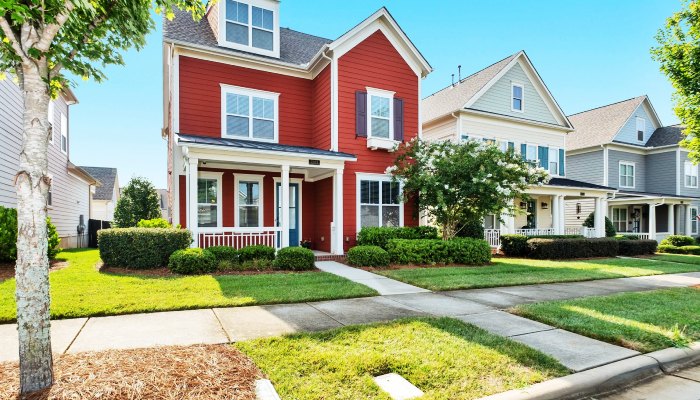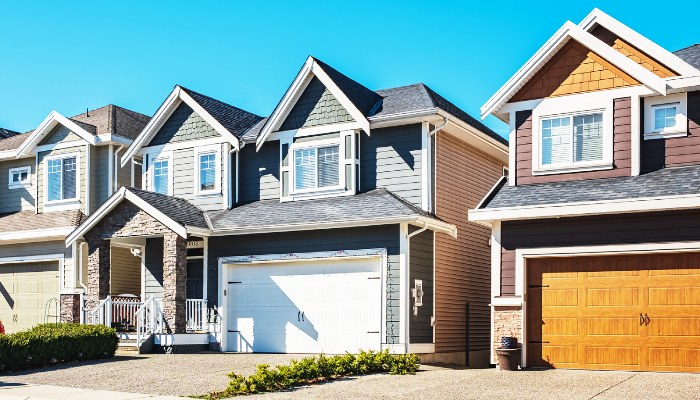
Driveway Parking Etiquette: How to Be a Good Neighbor in Residential Areas
Driveway parking is more than just a matter of convenience; it’s a crucial part of maintaining harmony and respect in residential neighborhoods. Proper parking etiquette helps prevent disputes, ensures easy access for all, and enhances the overall safety of a community. In areas where space can be limited and driveways are shared or closely situated, respecting boundaries and following local parking rules can make a substantial difference. For residents, frequent visitors, or even delivery drivers, understanding driveway parking etiquette keeps neighborhoods running smoothly and minimizes the risk of misunderstandings.
When residents practice considerate parking habits, they contribute to a positive community atmosphere, where everyone’s space is respected, and inconveniences are minimized. Whether it’s making sure you’re not blocking a neighbor’s driveway, communicating parking needs ahead of social gatherings, or resolving disputes diplomatically, these small acts of consideration add up. In this guide, we’ll cover essential driveway parking etiquette tips that help maintain good neighborly relations, making residential areas both safer and more enjoyable for everyone involved.

Understanding Local Residential Parking Rules
The first step in practicing good driveway parking etiquette is to familiarize yourself with the specific parking rules that apply in your residential area. Many neighborhoods have guidelines to ensure that cars parked on the street or in driveways do not obstruct access to driveways, limit visibility, or restrict the flow of traffic. Key rules often include maintaining a certain distance from driveways, respecting no-parking zones, and avoiding parking in front of fire hydrants or too close to other neighbors’ houses. Checking with your local council or homeowners association can provide clarity on these parking restrictions, ensuring compliance and helping you avoid any unintended violations.
Whether it’s parking near your own house or using street parking, understanding these rules goes beyond just following legal requirements; it’s also a way to respect your neighbors’ property and space. Observing driveway parking etiquette, such as leaving adequate space around your own driveway and being mindful of car placement, helps prevent scenarios where a blocked driveway could delay a neighbor’s schedule or hinder emergency vehicle access. By familiarizing yourself with these rules and applying them, you contribute to a well-organized and considerate neighborhood, allowing everyone to enjoy the benefits of a cooperative residential environment.
Respecting Neighbor’s Driveway Boundaries
Respecting driveway boundaries is essential for a considerate and functional neighborhood. When you park near a driveway, ensure there’s adequate empty space around your car parked close to any driveway to avoid blocking access. Even a partial obstruction can cause inconvenience, as driveways are crucial access points that allow residents to move freely to and from their own property, often several times a day. Blocking a driveway even slightly can prevent vehicles from entering or exiting, potentially disrupting schedules and leading to frustration.
A helpful rule of thumb is to check the property boundary and space around your car before leaving it parked near a driveway. Avoid encroaching on your neighbor’s house property and be especially mindful of boundaries with other neighbors’ houses. Give extra clearance if possible, particularly for larger vehicles. If you have guests park nearby, remind them of these boundaries to prevent unintentional issues. Observing these practices shows respect for your neighbors’ time and access needs, building mutual goodwill and helping avoid potential conflicts. Following these simple habits ensures everyone’s daily routines are undisturbed by parking challenges, contributing to a friendly and cooperative neighborhood.

Parking Considerations for Families with Young Kids
Practicing considerate driveway parking etiquette is especially important in residential areas where families with young kids live. When choosing a parking spot, avoid parking directly in front of someone else’s house or blocking access to other neighbors’ driveways. This allows for clear visibility and safer play areas for neighbor’s kids, who may often be outside or near driveways.
Being mindful of parking locations not only shows respect but also helps create a safer environment for children. By parking in a way that considers the needs of all residents, you’re contributing to a more harmonious and child-friendly neighborhood. Remember, even small efforts like not parking too close to a driveway or in front of one house repeatedly can make a big difference in fostering a considerate, safe community for everyone.
Effective Communication for Parking Needs
Open communication with neighbors about parking needs is an often-overlooked yet essential aspect of practicing driveway parking etiquette and learning how to be a good neighbor in residential areas. If you anticipate needing additional space for visitors or a specific parking arrangement that might affect driveways or other neighbors’ houses, a quick, friendly conversation can make a big difference. Giving neighbors a simple heads-up about an upcoming gathering or seasonal decorations, like Christmas lights, that might temporarily change parking patterns helps prevent misunderstandings and reduces the chance of tension.
Using a polite and respectful tone in these discussions makes it easier to address any concerns before they turn into issues. For example, if a neighbor’s car parked close to your driveway regularly obstructs access or crosses the property line, calmly addressing the matter allows both parties to work toward a solution without unnecessary friction. Similarly, if you or your guests park near sensitive areas like a fire hydrant or create a potential safety hazard, taking the time to communicate your plans shows thoughtfulness and respect for local laws. Effective communication fosters a cooperative spirit, reminding everyone that shared spaces require shared consideration, making driveway parking a seamless, stress-free part of neighborhood life.

Managing Visitor Parking Considerately
When hosting guests, ensuring their vehicles are parked thoughtfully is crucial to preserving a respectful neighborhood atmosphere. Visitor parking can be challenging, especially in residential areas where parking spots may be limited and other neighbors’ houses are nearby. To avoid disruptions, communicate basic parking guidelines to your guests ahead of time, suggesting they avoid parking near driveways, nature strips, or spaces that might inconvenience others. Encourage guests to use designated visitor areas, park on less crowded streets, and avoid blocking driveways or access points, particularly if they’re driving large vehicles that require more space.
For larger gatherings or events, consider organizing a specific parking plan to prevent people parking in ways that might unintentionally cause issues. If visitor parking is expected to be tight, give new neighbors or those close by a quick notice about the event. This courtesy allows them to prepare or adjust their own plans and helps avoid any tension. If guests must park on nature strips, encourage them to be mindful of property lines and not obstruct sidewalks or pathways. By maintaining this level of consideration, you prevent parking issues from becoming a source of frustration, fostering a positive, friendly neighborhood environment that respects everyone’s space.
Resolving Parking Disputes Calmly
Parking disputes can arise even with the best intentions, and handling these issues calmly is essential for maintaining a good relationship with neighbors. If a neighbor consistently parks in a way that causes inconvenience, such as blocking your driveway, occupying a shared driveway, or parking in front of your house, approach the matter respectfully. Instead of escalating the situation immediately, consider having a direct conversation to understand their perspective and clearly express your own needs. This approach is especially useful if they’ve been parking near your trash cans, on the nature strip, or in a spot that’s customarily used by you or next door neighbors.
Using polite, non-confrontational language can help de-escalate any tension and create a pathway for an amicable resolution. Suggest alternative parking spots, like a nearby parking lot or areas that won’t disrupt access. If the issue persists, or if talking directly doesn’t solve the problem, consider reaching out to your local council or neighborhood association, which often has guidelines for handling ongoing parking concerns. These resources can offer a structured way to address parking conflicts, particularly in areas with shared driveways or limited space. By staying calm and respectful, you protect the harmony of your neighborhood and model positive conflict resolution skills, ensuring that everyone can enjoy a well-coordinated and considerate residential environment.

Contributing to a Positive Neighborhood Atmosphere
Practicing good driveway parking etiquette is a key part of fostering a friendly and welcoming neighborhood. By being mindful of parking spots and ensuring not to park in front of other neighbors’ houses or block shared access points, you contribute to a community where everyone feels respected. Small acts of consideration, like leaving stopping signs unobstructed, keeping windows closed to minimize noise, and avoiding areas that could disrupt a neighbor’s view or access, all add up to improve everyone’s living experience.
These thoughtful habits encourage a spirit of cooperation and goodwill. Informing neighbors of any parking changes, particularly during gatherings, shows consideration and reduces the likelihood of misunderstandings or frustration. Respecting boundaries and choosing parking spots that don’t infringe on others’ property creates a harmonious environment and builds a culture of mutual respect. Ultimately, these efforts make residential areas more pleasant for everyone, fostering a positive neighborhood atmosphere where everyone enjoys a smoother, more peaceful living experience.
Practicing Common Courtesy in Driveway Parking
Practicing driveway parking etiquette is an essential part of learning how to be a good neighbor in residential areas. Beyond formal rules, there are many unwritten rules that help maintain harmony. One key aspect of this etiquette is avoiding actions that could inconvenience others, such as blocking the view from other neighbors’ houses or taking up too much space on the street. These small acts of consideration, like parking in front of your own property rather than someone else’s house, go a long way in showing respect for your neighbors.
Adhering to these unwritten rules of courtesy means being mindful of shared spaces and parking only where you don’t disrupt your neighbors’ routines. By following these guidelines, you help foster a positive neighborhood atmosphere, where everyone can feel respected and valued. This thoughtful approach to parking reflects the kind of driveway parking etiquette that makes residential communities more enjoyable for everyone.
Conclusion: Building a Neighborly Community Through Driveway Parking Etiquette
Embracing thoughtful driveway parking etiquette is a simple yet impactful way to nurture a strong, cooperative neighborhood. By understanding local parking rules, respecting driveway boundaries, and being mindful of how your parking impacts other neighbors’ houses and front yards, you help create a positive and harmonious environment where everyone’s needs are acknowledged. When you avoid blocking access points, keep visibility clear, and stay within your own designated spaces, you’re not only following good practices but also contributing to a respectful and considerate community.
Addressing any parking issues calmly and maintaining open dialogue with neighbors strengthens relationships and ensures that minor inconveniences don’t turn into lasting conflicts. If disputes do arise, handling them with patience and a commitment to resolve issues positively reflects the community-oriented spirit that good parking habits foster. Each of these considerate actions goes beyond rules they show a level of mutual respect and understanding that makes neighborhood life more enjoyable for everyone.
Ultimately, good parking etiquette is about more than just following rules; it’s about fostering respect, understanding, and community spirit. Small actions in day-to-day parking habits, such as being cautious around neighbors’ driveways and front yards, contribute to a happier, more connected neighborhood. When everyone prioritizes these thoughtful gestures, residential areas become safer, friendlier, and more enjoyable places for all.
This article is of a general nature and is intended for information only. It should not be relied upon as legal advice. If you require further information, advice or assistance for your specific circumstance, please contact us at Bouchier Khan Lawyers.
